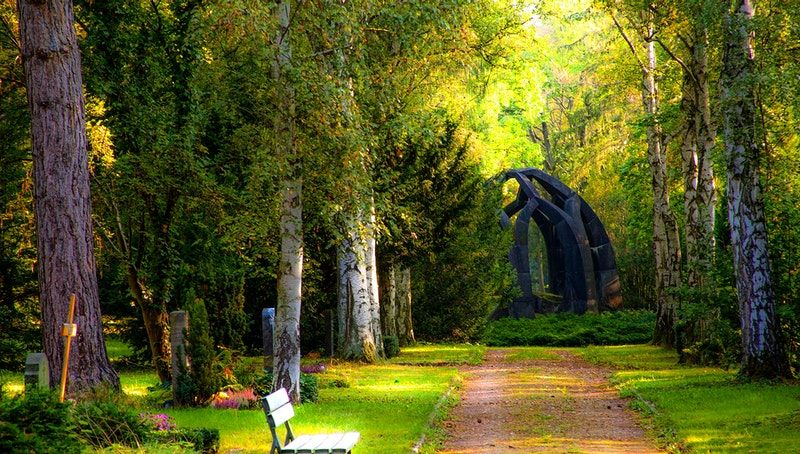We are fortunate in the Prescott and Russell region that so far, there have been no deaths caused by COVID-19. As of April 16, there are 65 confirmed cases in the Eastern Ontario Health Unit Region of Prescott & Russell, SD&G, and Cornwall. Four are hospitalized and of those, three are in intensive care.
Not one of us wants to be that first casualty, that first statistic; and so, we continue with the three health directives of: physical distancing, remain in our homes except for essentials, and wash our hands – often.
We know our local first responders are at work, organized and prepared. Our hospital has its procedures and staff in place.
But what if? What happens if someone here does die from COVID-19? What comes next?
In Vankleek Hill, Mark Henderson, owner and funeral director of Hillcrest Funeral Home, said, “All funeral homes expect challenges during this pandemic.” He explained that funeral homes have had these discussions through the Ministry of Health, Bereavement Authority of Ontario, and the Ontario Funeral Services Association. So what does that mean?
Henderson explained that funeral homes have always had protocols to use universal precautions when transferring the deceased person and respectfully handling the body. In normal circumstances, when funeral home staff arrive to bring a loved one into care, it is customary to wear gloves and perhaps a mask. It is also a funeral home tradition of respect that the staff wear business suits.
Today, the Public Health Ontario pandemic regulations stipulate that funeral home staff must wear full Personal Protective Equipment (PPE) when going to the place of death for their transfer duties, and in the handling of the deceased. “Whether the deceased tested positive for COVID-19 or not, we must protect ourselves and the people we come into contact with,” said Henderson.
Staff now take the extra time to don gowns, masks with visors, and gloves. It is done in a methodical fashion as outlined in training videos that direct in what order to put on the PPE, in what order to remove the PPE, and the repeated washing of hands throughout. Henderson indicated that this is not a process that makes anyone feel comfortable.
When going to the place of death, the conventional suits are gone. In their place, staff must wear clothing under the PPE that, once duties are completed, can be removed and washed immediately. Any vehicle and equipment used in the transfer must be systematically sanitized and disinfected.
Funeral services, meant to be benevolent and tender, are adversely affected by the pandemic. The need for physical distancing impacts the number of mourners that a funeral home can accommodate. At Hillcrest, a funeral service inside the funeral home must be limited to five people: four mourners and one clergy. And each person must first answer a COVID-19 health questionnaire.
Henderson said that a traditional casket burial at the cemetery would currently allow for nine mourners and one clergy, and still require physical distancing.
As a professional who is known for his compassion, Henderson is concerned that the COVID-19 restrictions, though necessary, will impact the normal grieving of loss in a detrimental way. “They cannot move along in their grieving,” he added in reference to his clients. In other words, grief is reined-in.
The ability for a bereaved person to find solace in the personal company of extended family and friends is just not possible during this time. “We are doing our best to share through Facetime and Zoom,” he said, with his tone implying that this is a far cry from the instinctive desire for personal touch. “We are working with families to meet their needs as best we can.”
Cemeteries and crematoriums were issued a directive from the Bereavement Authority of Ontario (BAO). “Most cemeteries do not open until May,” said Henderson. “If this pandemic were to become really bad in our region, there could be the need to have immediate burials and cremations. No one wants to see a repeat of the New York City experience.”
As to the paperwork that estates require, Henderson said, “All the different departments are working together to ensure the process is still being done in a timely fashion. No one wants to see a backlog.”
Currently, Hillcrest Funeral Home, as with other funeral homes, continues to operate 24/7 as an essential service. However, you must call ahead for an appointment, and many decisions are now made during conversations over the telephone with electronic transfer of documents.
In closing, Henderson conveyed what many are experiencing: “It’s not the same.”


